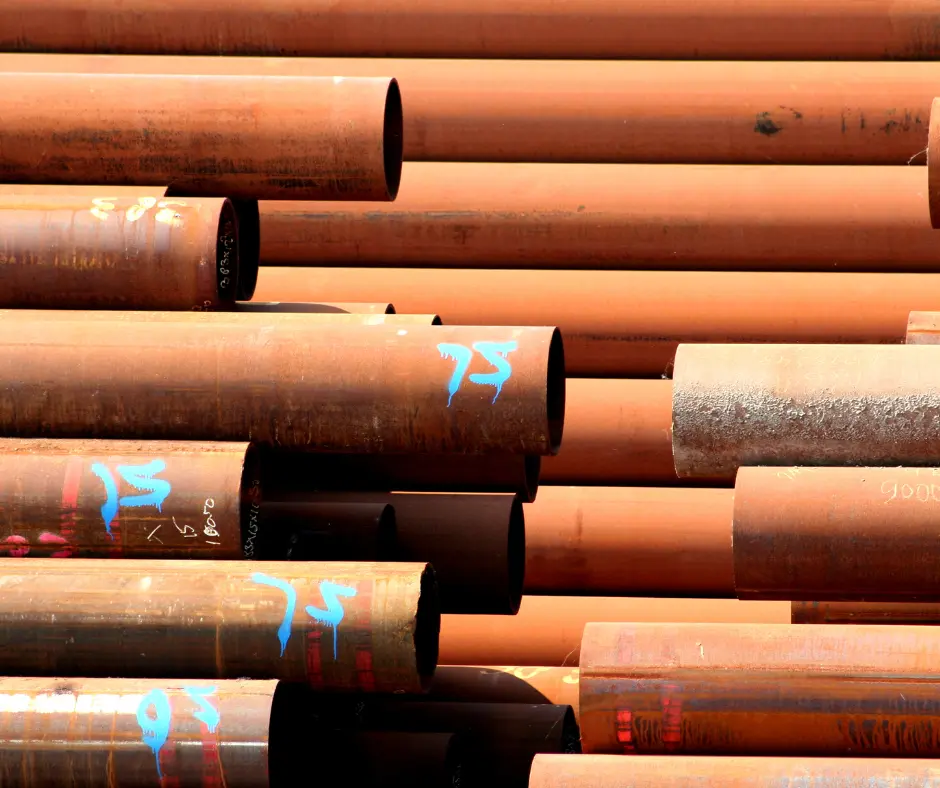
The Indian steel industry has been growing at a rapid pace with the construction sector being one of the biggest beneficiaries. One of the primary building materials used in construction is pipes, and Sahibabad, a city in the northern Indian state of Uttar Pradesh, is a major producer of mild steel pipes.
The city is widely acknowledged as a prime manufacturing hub of mild steel pipes with a significant percentage of India’s total production of steel tubes and pipes coming from Sahibabad.
Evolution of Mild Steel Pipe Market
The Sahibabad region has been producing steel tubes and pipes for a substantial period, and the industry has undergone several transformations. The initial production was manual, and a small number of tubes were manufactured, mainly for irrigation and drainage purposes. However, with the opening up of the Indian economy in the early 1990s, the steel industry quickly adopted modern production techniques to meet the increasing demand for pipes.
Mild steel pipes have always been the preferred choice of construction companies due to their low cost and ability to withstand high pressure. As a result, the demand for mild steel pipes kept rising, and soon, Sahibabad became a hub of production of these popular pipes. Today, the city is home to some of the biggest producers of mild steel pipes and tubes in the country.
Mild Steel Pipe Characteristics and Uses
Mild steel pipes are an essential component in construction projects, used for diverse applications such as irrigation, water supply, drainage, and gas pipelines. They are corrosion-resistant, durable, and cheaper than pipes of other metals. Additionally, mild steel pipes are ductile, meaning they can be easily welded, bent, and formed to any desired shape; consequently, they find high usage in structural applications.
Production Process
The production of mild steel pipes involves several steps, starting from the raw material stage to the final product. The primary raw material used in production is flat-rolled steel sheets, which are first fed into a forming machine where they are bent and welded together to form a tube. The tubes are then passed through a series of rollers to ensure consistent roundness and thickness.
After the roundness and thickness have been achieved, the pipes undergo a process of cleaning and finishing, where all impurities are removed, and the surface is smoothed to give a uniform appearance. The final product is then subjected to quality checks before being dispatched to the customers.
Current Status of Sahibabad’s Mild Steel Pipe Market
As of today, the Sahibabad region of India is home to many major companies engaged in manufacturing mild steel pipes. The region has experienced tremendous growth in the past few decades, and the demand for its products is expected to remain high in the coming years.
Currently, many factors are driving the growth of the steel industry in Sahibabad. One of the primary reasons is the strong demand from the construction sector, which accounts for nearly 60% of the total demand for steel products in India. As the Indian economy keeps growing, the demand for construction materials, including mild steel pipes, is expected to remain high.
Moreover, the government’s emphasis on the “Make in India” campaign has further boosted the growth of the steel industry in the region. The policy aims to encourage domestic manufacturing and reduce the country’s dependency on imported goods. As a result, many companies have invested in modern machines and equipment to increase their production capacity and efficiency.
Challenges Faced by Mild Steel Pipe Industry in Sahibabad
Despite the robust growth and high demand for mild steel pipes, the industry faces several challenges that affect its growth and profitability. One of the significant challenges is the inconsistent supply of raw materials, especially steel sheets. The country’s steel imports have been on the rise, leading to fluctuations in prices and supply, thereby affecting the industry’s cost structure.
Another major challenge is the increasing competition among manufacturers. With many players in the market, the competition is driving down prices, making it challenging for small manufacturers to remain viable. Tight margins lead some companies to resort to substandard production techniques, which affect the quality and safety of their products.
The Future of Mild Steel Pipe Production in Sahibabad
Despite the challenges, the mild steel pipe market in Sahibabad is expected to grow continually in the future. The government’s initiatives to promote domestic manufacturing and increase investment in infrastructure projects are expected to fuel the demand for steel products, including mild steel pipes. The market is expected to grow at a steady CAGR of around 5.5% over the next few years.
Conclusion
Despite the challenges, the mild steel pipe industry in Sahibabad is poised for growth. With the government’s focus on domestic manufacturing and the growing demand from the construction sector, the future looks bright for the industry. Moreover, the Indian steel industry has shown an ability to adopt modern production techniques and remain competitive globally. The industry is an important contributor to the country’s economy, and the mild steel pipe segment is an essential part of it. The industry is expected to remain a significant force in the global steel market for years to come.
- by goyalsteeltubes123
- on February 6, 2023
